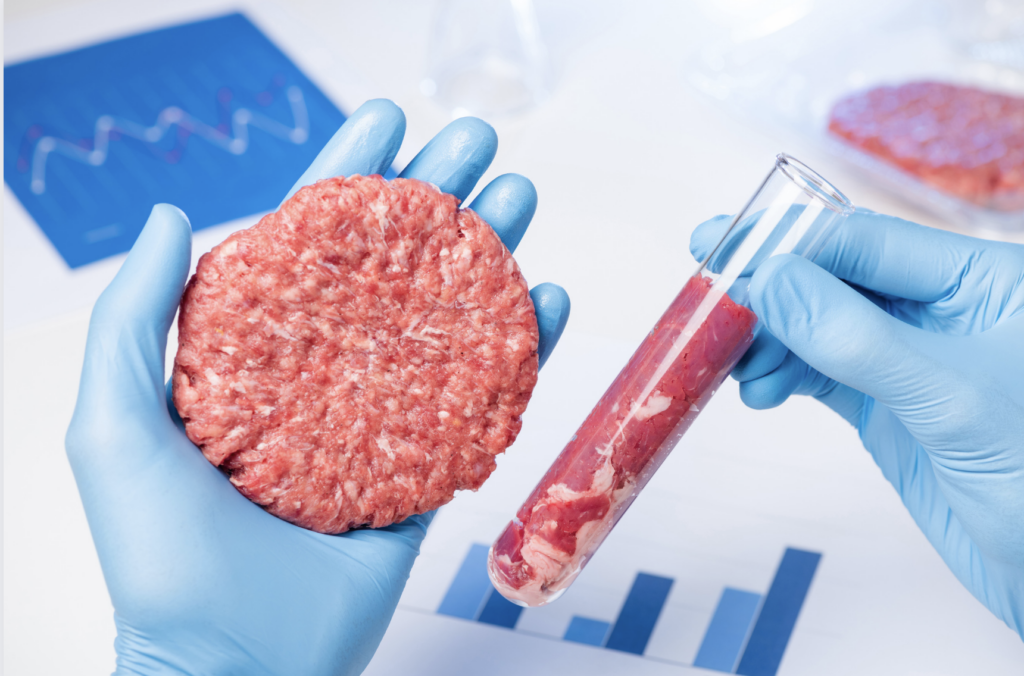In a bid to present cultivated meat as a green and ethical alternative to slaughtering and butchering live animals, animal welfare organisations organised on Tuesday Europe’s first-ever symposium on cultivated meat.
The event was attended by scientific experts and industry representatives. The venue was the Brussels Natural History Museum, a not-so-subtle hint that the Western diet, based on over-consumption of animal protein, might become a relic of the past.
According to organisers GAIA and the Eurogroup for Animals, cultivated meat could help close the gap between the amount of animal protein that can be sustainably produced and the actual global demand.
The real thing?
Experts compare cultivated meat or “cell-cultured meat” to real meat, originating from an animal, but without the need to maintain large numbers of animals under industrial conditions. The growth and development process takes place in bioreactors. The original cells are obtained humanely from living animals.
The discussion addressed key issues such as the environmental and social benefits as well as consumer perception. While plant-based products appeal to some, meat is still perceived as a unique food product. Cultivated meat is different in that it has the desirable properties of conventional meat so can appeal to those who aren't prepared to adopt a fully plant-based diet.
It also does away with the need to pump animals with antibiotics. This would be far healthier for humans and overcome the risk of contracting pathogens such as salmonella.
Related News
- First vegan fine dining restaurant opens in Belgium this weekend
- Wallonia company jumps on plant-burger bandwagon
- Vegetarianism ‘no longer niche’: more Belgians go without meat
“Cultivated meat could radically change our relationship with farmed animals and contribute to saving the planet. In addition, instead of producing feed for intensely farmed animals, we could divert resources to produce food to feed people”, commented Reineke Hameleers, CEO, Eurogroup for Animals.
In a recent op-ed in The Brussels Times, she argued that cultivated meat can become a game-changer already by 2030.
Not there yet
There is still opposition from vested interests against the transition but there seems to be growing support for it in the European Parliament. “Despite the rise of plant-based proteins, demand for meat remains high,” commented Portuguese MEP Francisco Guerreiro (Grees/EFA).
“Unlike plant-based products, cultivated meat is made from animal cells to produce a taste and texture almost identical to conventional meat, with many possible advantages: it reduces the need to raise animals for food, its production can be more environmentally friendly and also minimise food safety issues.”
Danish MEP Niels Fuglsang MEP (S&D) said that, “The way animal proteins are produced and consumed today has a major impact on the health of the planet. In Europe, current levels of meat consumption are unsustainable.”
M. Apelblat
The Brussels Times

